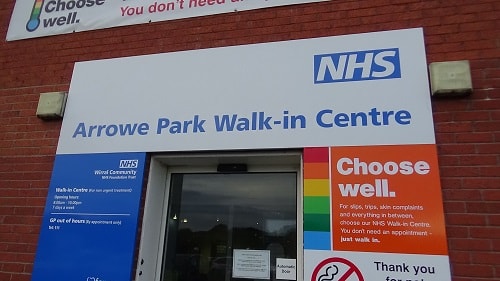What’s in the emergency legislation (Health Protection (Coronavirus) Regulations 2020)?

By John Brace – Local Government Editor
On Monday, the Health Minister Matt Hancock using Henry VIII powers made it a criminal offence to try and leave Covid-19 (2019-nCov) quarantine (as well as making other matters a criminal offence too). Parliament will have its say on the regulations after they’ve come into force (rather than the more usual situation which is before).
The new legislation which can be read here called Health Protection (Coronavirus) Regulations 2020 however goes much further than that.
It applies to England only (presumably devolution will mean similar legislation in the devolved administrations of Wales, Scotland and Northern Ireland), but once Health Minister Matt Hancock has published a notice on a website (which has already happened) declaring “that the incidence or transmission of coronavirus constitutes a serious and imminent threat to public health” it allows for:-
(a) a registered public health consultant or the Secretary of State to detain people (regulation 4),
(b) to impose restrictions and requirements (regulation 5) and screening requirements (regulation 6),
(c) further restrictions and requirements (regulation 7),
(d) isolation of persons suspected to be infected with coronavirus (regulation 8),
(e) detention or isolation (additional provision) (regulation 9),
(f) restrictions or requirements (groups) (regulation 10),
(g) power of a justice of the peace to make a part 2A order (regulation 11),
(h) appeals (regulation 12),
(i) enforcement (regulation 13),
(j) initial detection of persons to enable screening and assessment (regulation 14),
(k) offences (regulation 15),
(l) expiry (regulation 16) which is in two years time.
Essentially – certain civil liberties have been suspended (usually that only happens during a war) but rather interestingly in the explanatory memorandum it explains that before this legislation enforcement of a quarantine period meant local councils had to ask for a Justice of the Peace (magistrate) to agree to it, but for the reasons outlined in the explanatory memorandum to the legislation national government doesn’t appear to think local councils and the judiciary would be able to deal with it.
Essentially the national government is trying to prevent an epidemic.
Yet human behaviour being what it is – my personal view is that a certain amount of this is shutting the stable door after the horse has bolted.
However the discussion in the House of Commons and response from the Labour Party Spokesperson Jonathan Ashworth
MP yesterday (11th February 2020 can be read in Hansard.
If you click on any of the buttons below, you’ll be doing me a favour by sharing this article with other people.
It makes sense, to me.
Government can only react. It cannot be proactive because it doesn’t know what will be happening in the future. Precautions can be taken only after knowing the cause and likely most effective protective measures. Viruses and bacteria cannot be stopped. There is only protection preventing the worst of symptoms and, as we who have had the flu jab know too well, not even protection works.
Thanks for your comment John.
The proactive or reactive arguments are interesting – plus is the reference to influenza.
Shouldn’t one of the goals of a national government be to keep its citizens and residents safe from harm?
I agree with the point that viruses and bacteria (although this is a virus) can’t be stopped.
As to health protection measures – the problem is that apart from those outlined above (which just delay its spread) there’s little that can be done that wouldn’t have major effects elsewhere (for example shutting down flights impacts the economy).
On the issue of a vaccine (I think the national government have offered £40 million towards it) it’s unfortunately still a long way off (estimates have gone up to around a year).
Thanks.
Although as a further point, this legislation was made under powers in the Public Health (Control of Disease) Act 1984 which means parliament was proactive, even if I doubt such legislation was introduced in 1984 with such a scenario in mind.
Well done the Government! I mean if you have this virus and are in quarantine and leave and spread it to other who could die, then you should be charged with manslaughter.
On the subject of the name COVID 19, Did 19 people sit in an office and think up this name, and of course getting paid for their time?
Thanks for your comment.
In answer to your question, the World Health Organisation named it.
There was part of a press conference about the reasons why. The 19 refers to the year it emerged though (2019).